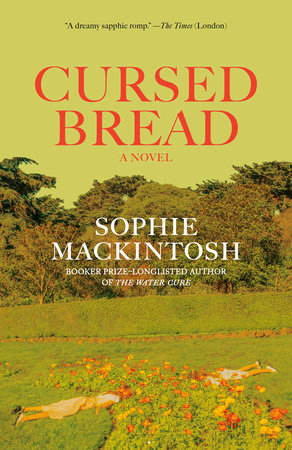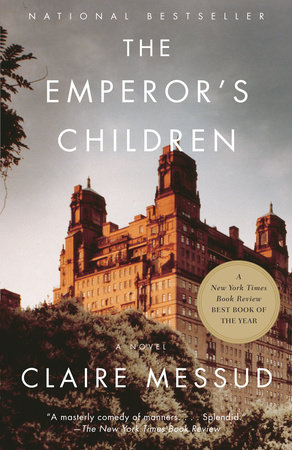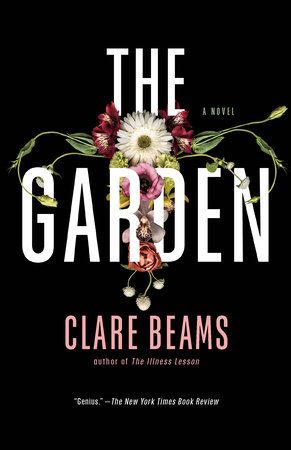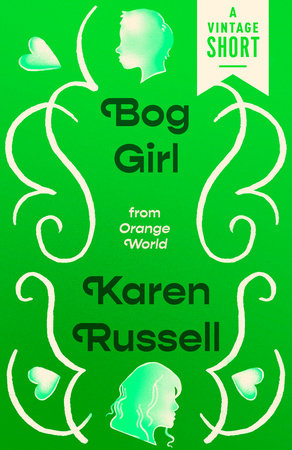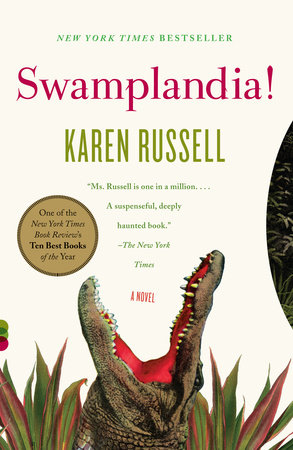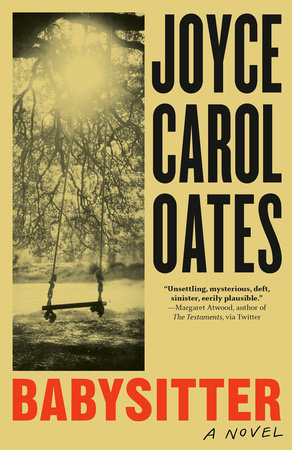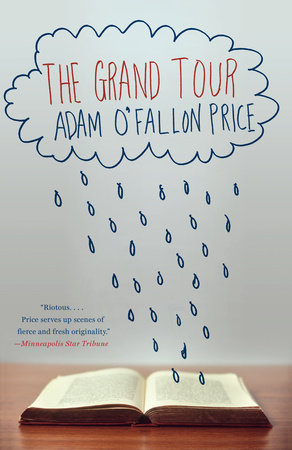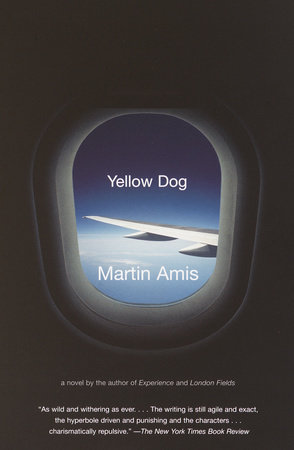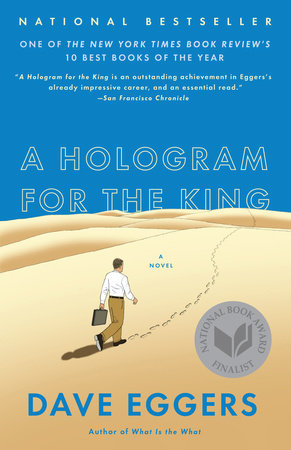Q: What gave you the idea to write about a gothic castle in central Europe? Your descriptions are so evocative, was there a trip or an actual place that inspired you or was this more the traditionally-imagined style of scary place, a la Nosferatu?A: There actually was a "moment of inspiration" for this book. It happened in the winter of 2001, right after I finished Look at Me but had no idea what I would work on next. My husband, who directs plays, had a job in Charleville, France, so we packed up our 8-week-old son and headed over there. My husband was working pretty constantly, and we ended up only having one day to explore our surroundings together. We drove to Bouillon, Belgium, which is where the first Crusade began, led by Godfrey de Bouillon. Godfrey’s ruined castle still stands on a high hill overlooking the town, and we went up there and stumped around in the mud and through lots of damp dark chambers, one of which had some instruments of torture in it. I was transfixed. I felt like there was electric current running through my body, but I wasn’t sure what it meant: that I wanted to write a biography of Godfrey de Bouillon? Probably not. That I wanted to write a novel set in medieval times? Maybe, but that seemed like a tall order for someone with a newborn baby and very little time to do heavy research. I mulled over my reaction to the castle for many months after that visit, and finally decided that what really interested me was the atmosphere of that ruin—the slightly cheesy nostalgia I’d felt for some imagined Medieval past. In other words, a gothic sensibility.That being said, the castle I describe in The Keep is not Godfrey’s castle per se—it’s more generic. I did a fair amount of reading about castle architecture, and at one point I considered trying to draw, or have someone else draw, a floor plan of the castle in The Keep, but in the end I felt that I wanted it to be unknowable in some way—more a literary construct than an actual place.Q: This story has some classic atmospheric ghost-story elements to it: were there any literary influences for that aspect, or do you have any favorites?A: I loved the idea of using some classic gothic elements in this book: an old moldering structure; the possibility of supernatural activity; the sense of being cut off from the “real world”; twins; books inside books; a “found” manuscript. I read a fair amount of gothic literature, and found that I particularly enjoyed the 18th and very early 19th century stuff: The Castle of Otranto by Horace Walpole, The Monk by Matthew Lewis, The Mysteries of Udolpho by Ann Radcliffe, Melmoth the Wanderer by Charles Maturin. These books are really crazy out somewhat of control from a literary standpoint, which seemed to suit the gothic genre very well. That being said, I think the most perfect gothic work I’ve read is Henry James’ The Turn of the Screw.Q: There’s a recurrent theme about the power relationships between people, such as the one between the two main characters who are cousins, Howie and Danny, which reaches back to their adolescence and an act of supreme cruelty. Is this a theme that greatly interests you?A: I’m not sure power relationships per se have interested me before The Keep, but they came to in the writing of this book. I write pretty unconsciously, with little sense as I begin a first draft of what will end up on the page or what I’ll do with it. As I was writing the character of Danny, I found that he was obsessed with power, and moreover that he believed his obsession with power would lead to his having power. This linked up with one of my central preoccupations in The Keep, which is where to place our disembodied communication (cell phones, internet), which occupies more and more time, on the spectrum of real to unreal. For example, a person can feel, through telecommunications, an extraordinary sense of power and reach—a sense of being intimately linked to many people all over the world. But looked at another way, they may be isolated and disconnected. So are they powerful or not? Danny embodies that question.Q: This book is also a wonderful meditation on the art of writing itself and the use of the imagination, particularly in the simultaneous story of prisoners in a fiction-writing class. Do you believe in the power of the imagination to change lives and was it difficult to write about the art of writing? Have you, like the character Holly who teaches writing to the inmates, ever taught writing?A: I have taught writing, though I can’t claim to have revolutionized anyone’s life or perspective with my teachings, as Holly does. To tell you the truth, I was a little surprised by the affirming note this novel ends on; in some sense it really is a paean to the imagination, but I didn’t set out to write that. I began The Keep with an interest in the way the internet has made so much of our experience imaginary—we aren’t dealing with actual people, just people we conjure up in our own minds and then react to. But I ended up feeling that our ability to invent worlds and describe them in words—to tell stories—is one of the most thrilling aspects of our humanity: it gives us the power to build, to escape, to transform ourselves. Back to the idea of power, I ended up feeling that our imagination is the most basic, inviolable locus of power in each of us. It’s also a source of danger; when our inventive tools turn against us, we become paranoid, and the whole world is our enemy. At which point we can become quite aggressive in our efforts to defend ourselves from it.Q: The character of Danny, the downtown New York 30-something, is a keen observer of life, always registering his sensory impressions, but also described as having “invisible skills” like detecting instantly who in a room has power and possessing a certain radar that lets him know how to talk to anyone. Qualities that are also useful to a novelist. Did you relate much to his or to any other character?A: I tend not to write about myself or people like me if I can help it. This is partly because I don’t like the feeling of being exposed, but more, it’s because I like to escape from my own life as I write. So I didn’t imagine Danny as having a novelist’s sensibility quite, though now that you put it that way, I realize that my connection to him is through his alert, observational tendencies. I felt a kind of hilarious affection for Danny, because he’s so self deceiving; in a sense, he’s bet his life so far on the mistaken belief that proximity to powerful people is power, a little like a child who thinks that because he’s at a grown-up party, he’s a grown-up. I was interested in that brand of intractable childishness, and I wondered whether telecommunications technology, especially the internet, makes it possible to fool oneself with fantasies of adult life as a substitute for actually growing up. And that’s something I can’t relate to personally, because I’m 43—part of the last generation of people to grow up without a computer. I didn’t touch one until I was in college.Q: How was it writing from the perspective of men? Were there unexpected challenges involved? A: I loved it, for the reason I mentioned above: I don’t like writing about myself or people like me. And what better way to avoid it than to write from a male point of view—or, as it turned out, from the point of view of a man writing about a man? I’d been edging toward it for a while in short stories, which I often use to explore technical issues before I tackle them in a long form. I found it surprisingly easy to write as a man, but I didn’t trust those instincts; I’ve read novels written by men from a female perspective that were laughably off, and I didn’t want to make that mistake. I was thrilled when male readers found the manuscript credible.Another advantage of writing from the perspective of not just a man but a decidedly non-literary man, was that it gave me a chance to move away from lyricism. That was something I’d been wanting to do for a while. I felt tired of pretty writing, full of lovely sounds and apt metaphors. I wanted something completely different, a voice that would never try to say anything beautifully, but would instead have to struggle to say it at all. Any beauty would have to come about by accident. I found that incredibly freeing—a release from a more lyrical sensibility. Q: Another theme in the book is about the not-so-great need to be plugged in constantly to modern technology: cell phones, the internet, satellite dishes, and the disembodied and fractured nature of this kind of communication. In a perhaps-related thought, Danny observes about the castle: “[he had] a weird impression that the long-ago past was in perfect shape, but the closer you got to today the more things collapsed into this ruined state.” Do you feel this at all true of our modern world?A: I have huge worries about the modern world, particularly our ability to destroy ourselves either slowly, by poisoning our environment, or quickly through weaponry. But I’m wary of the myth that things were better before—it’s too easy. Would I have wanted to live before the time of antibiotics? Before women could vote or hold most kinds of jobs? I don’t think so. That being said, I was curious in The Keep, as in Look at Me, about the degree to which technology has changed us internally, as human beings. Is the human experience qualitatively different for a person who exchanges a hundred emails and fifty phone calls a day, than for a person who wrote letters by hand and waited days or weeks for a response, inhabiting an environment that was silent unless another person was in the room with them? I’ll never know, of course, but those kinds of questions fascinate me.Q: The language/dialogue in the book has, at times, a distinctly and delightfully popular feel to it, as well as a lot of humor: was it fun to write in that vernacular?A: It was incredibly fun. I’ve moved more and more toward humor in my work, I’m not sure why. The big question in The Keep was whether a book could be funny and scary at the same time. I couldn’t think of other books that had made me feel both those things, and I’ll be curious to see how readers think I fared in The Keep. As for the vernacular speech, I was interested in letting gothic nostalgia collide with Danny’s contemporary sensibility, because the two seemed so irreconcilable. The gothic environment is traditionally about being cut off. I think a lot of the humor in the book arises from the juxtaposition of hipster connectedness with spooky remoteness.Q: This is a much-different novel than your previous one, Look at Me. Did you make much of a conscious effort to go in an entirely different direction?A: It wasn’t a conscious effort, but that seems to be the pattern for me. I work a long time on my books, and I tend to feel that I’ve exhausted a particular direction by the time I finish one. My first novel, The Invisible Circus, is steeped in nostalgia for the 1960s, which I felt very keenly growing up in San Francisco in the seventies. I didn’t think I could ever exhaust that nostalgia in myself, but when I finished that book it was gone. For Look at Me, I was taken with the idea of writing a slightly futuristic satire about the impact of image culture on millennial America. Having finished that, I found myself wanting to move into a more imaginary, consciously literary environment—hence the setting of The Keep. I still wanted to explore contemporary issues, but without having to contend with a particular time or place. And having set those parameters, I basically guaranteed that it would be nothing like Look at Me.I should say that for me, one of the hardest things about beginning a new novel is settling on the right voice for it. The voice of the previous novel is still with me at first, but it’s an annoying holdover, useless to render up the entirely different world I’m trying to create. Once I’ve found the new voice, which comes about after many months of trial and error and banging my head against the wall, then I’m able to move more easily into the new work.Q: Are you working on anything new yet?A: I’m researching a new novel, which I think will be set in New York right after World War II. The timing and specificity of that choice suggests that it will have little in common with The Keep, or with any of my earlier novels. I can’t imagine anything remotely gothic happening in this new one. Having enjoyed partaking of that atmosphere for a while, I feel sated, and ready to move on to something completely different—which will require a new voice and technical skills I may not yet possess in order to be fully realized.






